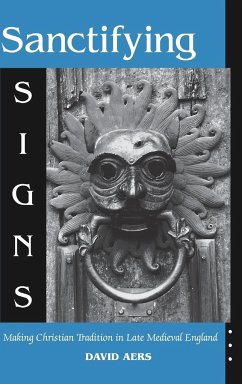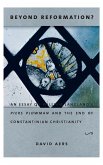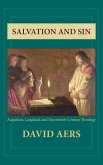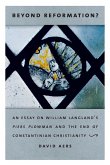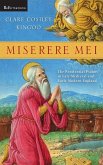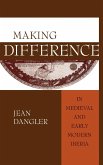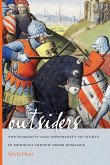Concentrating on the sacrament of the altar, poverty, and conflicting versions of sanctity, Sanctifying Signs presents a critical study of Christian literature, theology, and culture in late medieval England. In this notable book, David Aers considers the diverse ways in which certain late medieval Christians and their Church engaged the immense resources of the Christian tradition in their own historical moment. Using a wide range of texts, Aers explores the complex theological, institutional, and political processes that shape and preserve tradition during changing circumstances. He is particularly interested in why some texts were judged by the late medieval Church to be orthodox and others heretical, and the effect of these judgments on the conversations and debates of the fourteenth and fifteenth centuries. Sanctifying Signs begins with accounts of the sacrament of the altar that were deemed orthodox in the late medieval Church. Aers then shifts his focus to the relationship between sanctification and the sign of poverty. Finally, he reflects on the relationship between some versions of domesticity and sanctification. Texts of William Langland, John Wyclif, Walter Brut, William Thorpe, and others, Aers explores the complex theological, institutional, and political processes that shape and preserve tradition during changing circumstances. He is particularly interested in why some texts were judged by the late medieval Church to be orthodox and others heretical, and the effect of these judgments on the conversations and debates of the fourteenth and fifteenth centuries.
Hinweis: Dieser Artikel kann nur an eine deutsche Lieferadresse ausgeliefert werden.
Hinweis: Dieser Artikel kann nur an eine deutsche Lieferadresse ausgeliefert werden.

